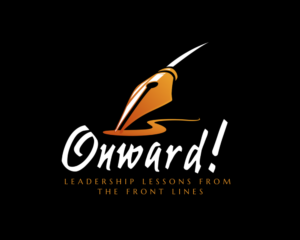My thoughts this week are about pride and humble pie. The pride comes from our team hosting two successful conferences last week. Between the two, we covid tested and hosted over 500 people and hosted four full days of intense training. The sessions were well taught, and the feedback has been great. It takes a tremendous effort by a lot of people to put on good conferences and I’m proud of the team. It is fun to be part of a team where people are focused and performing well.
The humble pie comes from a meeting that didn’t go as well. It involved a project I’ve been working on for over a year. We were trying to start the next phase by introducing it to a larger group. It did not go as well as it could have. Yes, the meeting was rushed and in the middle of our other conferences, but the reality is that I was not prepared enough, emotionally or intellectually. Instead of calm, cool and collected, I was harried. I rushed the introduction and when the group began to question the project, I got defensive. For me, defensive tends to have an offensive bent. I tend to want to “debate aggressively.” The challenge with this, of course, is that as the CEO, there really isn’t much of a debate when I get aggressive. People stop talking. I speak. Silence follows. In the end, not only did I fail to gain their buy-in and support, I likely made them less excited about the project and more nervous about the person leading the effort (me). It was not my finest hour.
I would love to say that I was smart enough to come to this realization on my own. I was not. Thankfully I had some teammates that were able to challenge me the next day. And I mean really challenge me, not backing down when I got more aggressive (I’m still very much a work in progress). Over close to two hours, we hashed through the myriad of issues. I learned a ton and we ended up in a much better place, but it was painful for everyone involved. It reinforced some leadership lessons for me, many of which I knew intellectually but have not yet mastered.
- Planning matters. I needed to make sure that I was fully prepared for the meeting. And preparation was not only scripting the discussion but also being mentally prepared for the discussions and pushback. I have worked hard to come into big meetings with the right mindset, calm and measured. I was not there, fully focused on the other conference and ensuring it was going well. In retrospect, we should have rescheduled or I should have taken time before to make sure I was mentally prepared.
- When the students fail to learn, the teacher has failed to teach. I got frustrated with the fact that the people I was trying to convince just didn’t “get it.” I desperately wanted them to accept what I was saying. When they didn’t basically say, “Gee Jeff, that’s brilliant!” My ego kicked in. It wasn’t until my teammates pushed back hard and I had some distance that I realized that my real frustration was with me. My “students” weren’t learning not because they were incapable (they are all successful leaders and business people), but because I had failed to teach.
- Everyone must travel the change path. I often talk about the Kubler-Ross Change Curve (below). I love its description of change and believe it captures the path the people travel when navigating major change. For this project, I had already been down the curve and was on the far side.

But I failed to recognize that everyone else was at the starting line and would need the same amount of time to travel the same journey. I so desperately wanted them to be with me, I forgot they had a lot of catching up to do. I got frustrated when they weren’t “with me,” but I shouldn’t have been surprised.
- It Starts with Why. Simon Sinek’s famous book of the same title. I’ve read it but clearly have a lot more work to do to put it into practice. I failed to take the time to really establish the need for change, the why behind the project. I also failed to paint the vision of the happy place we would get to. And then I was shocked when people were trying to figure out why they should join me on the journey.
- Having true teammates is key to success. True teammates are the ones who will tell you what you need to hear, not what you want to hear. I am grateful to have a team of people who call it straight, who are not “YES MEN” as it were. They came up big for me, having the courage to raise the issue and not back down when I got defensive (and offensive). They allowed me to get past my ego and really understand what the problems were from others’ points of view. I am so close to the issue and so convinced of the project’s potential that I couldn’t see my own shortcomings. The confrontation didn’t feel very good at the time, but it felt a hell of a lot better at the end.
So I’m off to clean up my mess, to own the failure of the meeting, to apologize to those in attendance, and to start again. I still believe in the project. We need to do it and I am more convinced than ever of its ultimate potential. And finally, I need to thank my team, for having the courage to challenge me and help me continue to learn, to continue to get better.
Humble pie doesn’t taste very good going down but it is great medicine for the soul.
Onward!
Jeff





